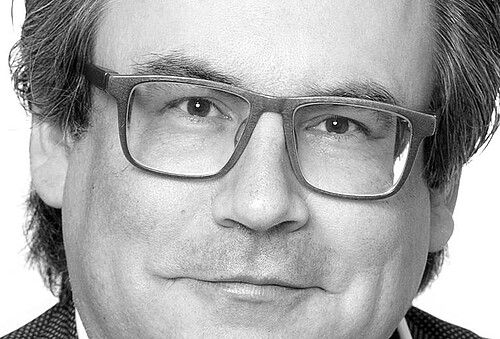Forward-looking and modern
Improving overall health, increasing life expectancy, reducing the risk of hazards, and managing emergencies and catastrophes – this is what our engineers do. We understand the language of doctors and we develop and maintain the machines that people need: with new technologies, computer-supported communication and minimally invasive techniques. Our interdisciplinary teaching integrates competencies from medicine, safety and rescue technology, and logistics.
Head of department
Future-oriented biomedical engineering
Biomedical engineering has become established as an independent area of study alongside classical engineering courses such as mechanical and electrical engineering. It has consistently been one of the fastest-growing sectors in the Hamburg region – as well as nationally and worldwide – for several years. The core fields of biomedical engineering are developing quickly, which translates into excellent employment prospects in research and all phases of the product lifecycle of medical devices and systems.
Contemporary emergency response
Our experience of natural disasters and terror attacks proves that we need professional cooperation and interdisciplinary expertise to respond effectively to emergencies. Modern emergency response calls for skills across the areas of medicine, safety and rescue technology, and the logistics of major operations. Responding to emergencies is a sociopolitical task; leaders and specialists in this field therefore need broad, up-to-date knowledge of the associated economic, sociological, psychological and legal issues and managerial competencies alongside their ability to think, take decisions and act in line with good engineering practice.
Modern hazard control
Natural disasters, technical failures, chemical incidents, major fires – all these and other hazards pose a threat to people, property and the environment. Successfully combating and preventing these dangers requires specialists with a high level of multidisciplinary expertise. The Bachelor’s degree course in Hazard Control provides future specialists and managers with comprehensive education in issues of fire and accident prevention, the logistics of response to major incidents at home and abroad, chemical safety, and the assessment of environmental risks.
European Master of Medical Technology and Healthcare Business
EMMaH – one international Master's degree course taught at three universities of applied sciences in three European countries. In 2021, a new partner joined the master program: Taipei Medical University.
Do you have a first degree in biomedical engineering, hazard control, rescue engineering or a related discipline? With this course you can deepen your knowledge of the medical technology and healthcare business, a leading growth sector in national and global markets. Study technology at HAW Hamburg, obtain training in clinical application at the Polytechnic Institute of Porto and complete your business background courses at the University of Lille. You can choose your destination for the thesis.
Degree courses Degree courses
Address Address
Location
Hamburg University of Applied Sciences
Faculty Life Sciences, Department of Biomedical Engineering
Ulmenliet 20, 21033 Hamburg
Germany
Postal address
Hamburg University of Applied Sciences
Faculty Life Sciences, Department of Biomedical Engineering
P.O. Box 10 03 61
20002 Hamburg
Germany


Biomedical Engineering in german Biomedical Engineering in german